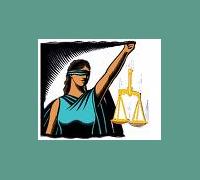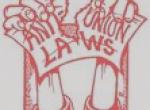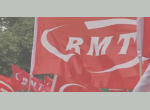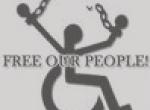TUC Disabled Workers’ Committee strongly opposes the Police, Crime, Sentencing and Courts Bill.
The Bill includes new duties which oblige public services to share service users’ information with the police, which is an unacceptable shift away from a public health approach to an authoritarian approach, which will erode trust between public services and disabled people.
The Bill also severely restricts the right to protest and further restricts our right to picket effectively. It gives the police power to impose conditions on demonstrations that ‘may result in serious disruption’ and expands police powers to arrest anyone in breach of these conditions and increase sentences for those found in breach of them.
For over a century, disabled people have used protest as a major weapon in our fight for liberation, including mass protests and direct action. Our movement has taken many actions which could fall foul of new offences in the Bill such as causing ‘annoyance’, ‘inconvenience’ or ‘public nuisance’.
It has been through causing annoyance, inconvenience and public nuisance that we have won many rights, which would not have been given to us otherwise.
We also believe that the provisions of the Bill fall even more harshly on traveller communities, and on Black and ethnic minority people, especially disabled members of these communities, who are already disproportionately profiled and treated brutally by the police.
We also express our concerns over the Elections Bill. We believe that compulsory photo identification in the Bill will exclude people from voting, in particular groups already marginalised within society, including those disabled people who face barriers accessing photo identification. We also oppose the new rules on joint campaigning that will penalise unions working with political parties.
We support and will participate in the disabled people’s movement resisting these hostile legal moves, and support those protesting against them and, should they become law, defying them.
- 2947 reads






